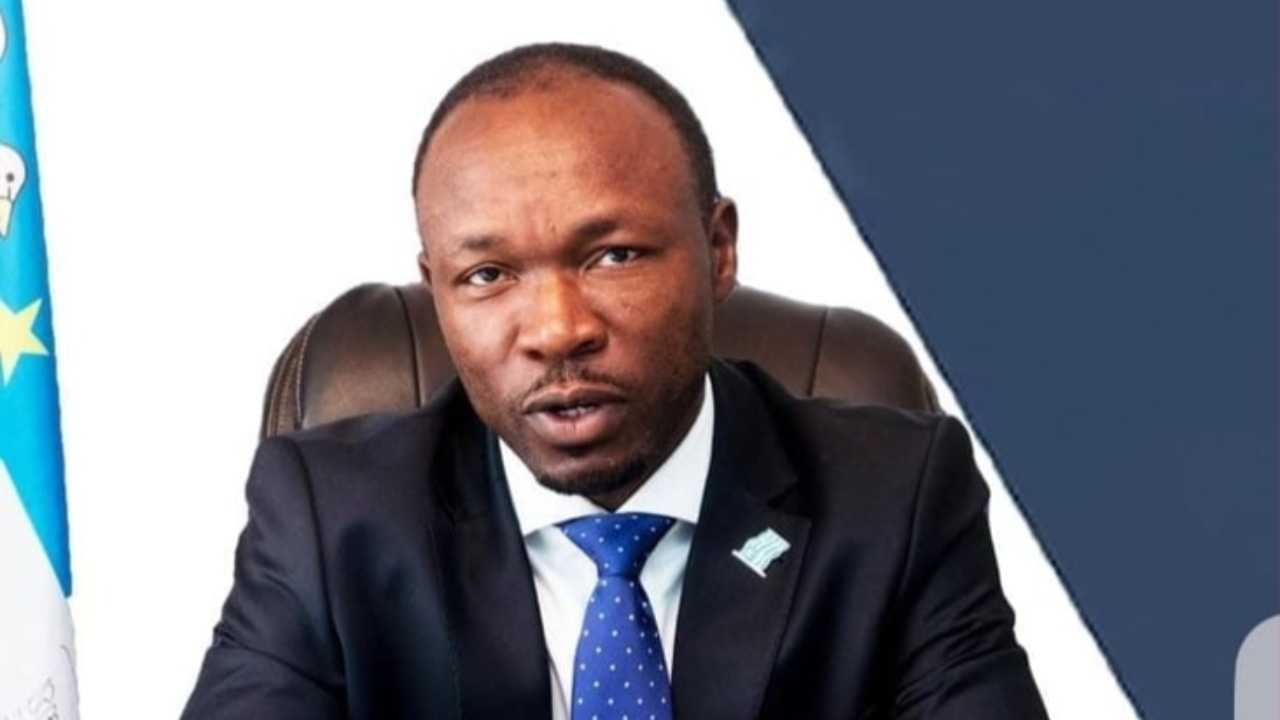The arrest of Lucas Ayaba Cho, a prominent Cameroonian separatist leader, in Norway marks a significant event in the ongoing Anglophone crisis that has plagued Cameroon since 2016. Cho’s apprehension, based on allegations of his role in an armed conflict that has claimed over 6,000 lives and displaced nearly a million people, has stirred mixed reactions within the international community.
The roots of the Anglophone crisis can be traced back to the historical division of Cameroon into English-speaking and French-speaking regions, a legacy of colonial rule. After World War I, the League of Nations mandated Britain and France to administer different parts of Cameroon. The English-speaking regions were eventually integrated into the Republic of Cameroon in 1961, but many Anglophones have long felt marginalized and discriminated against by the predominantly French-speaking government.
Since the outbreak of the crisis in 2016, there has been a growing movement for independence in the Anglophone regions, fueled by grievances over language rights, economic marginalization, and political exclusion. Armed separatist groups, including the Ambazonian Defence Forces (ADF), have emerged, demanding the establishment of a separate state known as Ambazonia.
The Role of Lucas Ayaba Cho
Lucas Ayaba Cho has been a key figure in the separatist movement, serving as the Commander-in-Chief of the ADF. His leadership has been characterized by a hardline stance against the Cameroonian government, and he has been instrumental in organizing protests and military actions. Cho’s influence extends beyond Cameroon; he has managed his operations from Norway, leveraging social media to rally support and direct activities within the Anglophone regions.
Cho’s radicalism is not new; it dates back to the 1990s when he was involved in student activism. His history of anti-government sentiment culminated in a call for an independence referendum for the Anglophone regions. However, his leadership has also attracted controversy, particularly regarding the tactics employed by the ADF, including the imposition of a “liberation tax” and aggressive actions against civilians, such as the recent targeting of taxi drivers.

The Arrest:
Cho’s arrest on September 24, 2024, by Norway’s National Criminal Investigation Service (KRIPOS) was based on charges related to his social media expressions and alleged involvement in the ongoing conflict. His lawyer indicated that Cho was unaware of any extradition request to Cameroon, raising questions about the legal proceedings that may follow. The Cameroonian government has expressed its desire to extradite Cho, highlighting a security agreement between Norway and Cameroon.
The news of Cho’s arrest has ignited reactions on social media, with supporters of the Anglophone movement celebrating the event as a potential turning point in the conflict. However, many within the separatist community view it as a violation of their cause and a challenge to their ongoing fight for independence.
Diplomatic Implications of the Arrest
Cho’s arrest carries significant diplomatic implications, both for Norway and for Cameroon. As Norway navigates its relationship with Cameroon, the arrest could be viewed as a reaffirmation of its commitment to international security and accountability. It may also strengthen Norway’s position as a mediator in the Anglophone crisis, given its involvement in peace negotiations in other conflicts.
For Cameroon, the arrest represents an opportunity to assert control over separatist leaders operating abroad. The government has long sought the repatriation of leaders like Cho to face trial for their roles in the violence. This incident could embolden Cameroonian officials in their ongoing campaign against separatism and may prompt other countries hosting Anglophone leaders to consider similar actions.
Conversely, the arrest may also complicate diplomatic relations between Norway and other countries sympathetic to the Anglophone cause. Norway’s decision to act against Cho could be perceived as aligning with Cameroon’s government, potentially straining its relationship with other nations advocating for Anglophone rights.
International Reactions and Human Rights Concerns
The international community has closely monitored the situation in Cameroon, with human rights organizations like Amnesty International condemning violence from both government forces and armed separatists. The arrest of Cho raises concerns regarding the treatment of political dissidents and the potential for a crackdown on dissent within the Anglophone community.
Critics argue that the actions of the Cameroonian government, including extrajudicial killings and the suppression of free speech, must be taken into account when discussing the legality and morality of Cho’s arrest. Furthermore, there is apprehension that Cho’s extradition could lead to harsher reprisals against those involved in the separatist movement.
Future Prospects for the Anglophone Movement
The arrest of Lucas Ayaba Cho marks a critical juncture for the Anglophone movement. While some view it as a significant victory against separatist violence, others see it as a blow to the struggle for autonomy and self-determination. The ongoing conflict in Cameroon remains deeply entrenched, with both sides unwilling to compromise.
The Anglophone crisis will likely continue to evolve as new leadership emerges within the separatist ranks. The potential for increased violence, coupled with international pressure for accountability and justice, presents a complex landscape for those advocating for the rights of Anglophones.
The arrest of Lucas Ayaba Cho in Norway symbolizes the intricate interplay of local conflict dynamics and international diplomacy. As the situation unfolds, the implications of this event will reverberate throughout the Anglophone community and beyond. Ultimately, the resolution of the Anglophone crisis hinges on addressing the underlying issues of discrimination, marginalization, and the quest for justice, both within Cameroon and in the broader global context.



